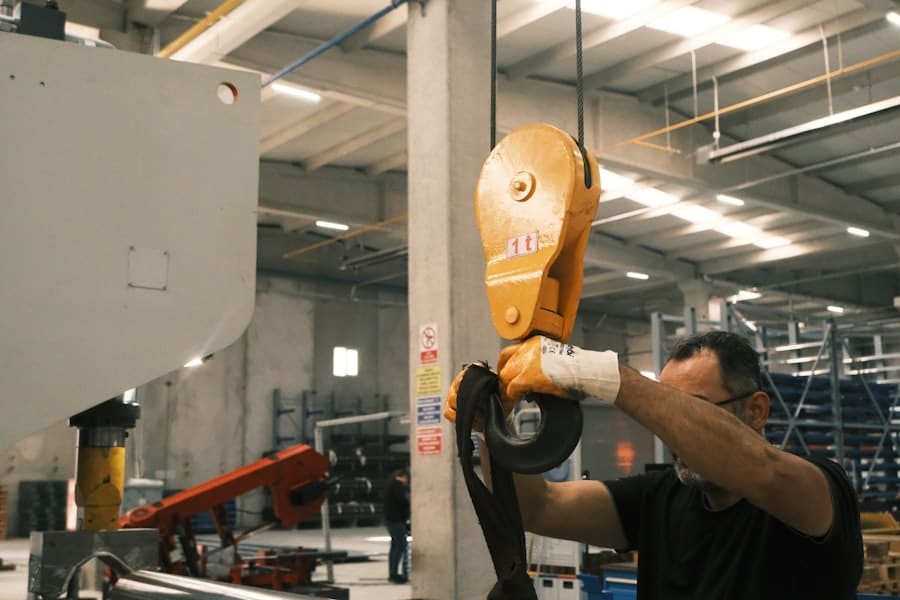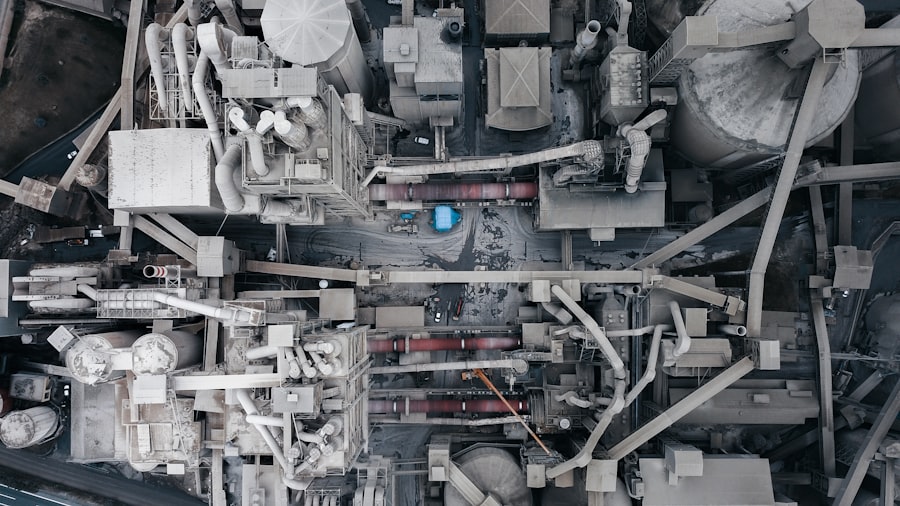In recent years, the integration of artificial intelligence (AI) into various sectors has transformed traditional operational paradigms, particularly in workflow automation. AI agents, which are software programs designed to perform tasks autonomously or semi-autonomously, have emerged as pivotal tools in streamlining processes across industries. These agents leverage machine learning, natural language processing, and data analytics to enhance efficiency, reduce human error, and optimize resource allocation.
As organizations increasingly seek to improve productivity and adapt to rapidly changing market conditions, the role of AI agents in workflow automation has become more pronounced. The concept of workflow automation itself is not new; however, the infusion of AI technologies has revolutionized how workflows are designed and executed. Traditional automation often relied on predefined rules and linear processes, which could be rigid and inflexible.
In contrast, AI agents can analyze vast amounts of data in real-time, learn from interactions, and make decisions based on evolving circumstances. This adaptability allows businesses to respond more effectively to dynamic environments, ultimately leading to improved operational outcomes. As we delve deeper into the role of AI agents in managing complex workflows, it becomes evident that their capabilities extend far beyond mere task execution.
Key Takeaways
- AI agents are intelligent software programs that can automate and optimize workflows in various industries.
- AI agents play a crucial role in managing complex workflows by analyzing data, making decisions, and executing tasks without human intervention.
- Using AI agents for workflow automation can lead to increased efficiency, cost savings, and improved accuracy in decision-making.
- Challenges and limitations of AI agents in workflow automation include data privacy concerns, potential job displacement, and the need for continuous monitoring and maintenance.
- Best practices for implementing AI agents in workflow automation include thorough planning, clear communication, and ongoing evaluation and improvement of the AI system.
The Role of AI Agents in Managing Complex Workflows
AI agents play a crucial role in managing complex workflows by acting as intelligent intermediaries that facilitate communication and coordination among various components of a system. In environments where multiple tasks must be executed simultaneously or sequentially, these agents can prioritize activities based on urgency, resource availability, and potential impact on overall objectives. For instance, in a manufacturing setting, an AI agent can monitor production lines, assess equipment performance, and predict maintenance needs, thereby ensuring that operations run smoothly without unnecessary downtime.
Moreover, AI agents can enhance collaboration among teams by providing insights derived from data analysis. In project management scenarios, for example, an AI agent can analyze team members’ workloads and suggest optimal task assignments based on individual strengths and current commitments. This capability not only improves efficiency but also fosters a more balanced distribution of work, reducing the risk of burnout among employees.
By automating routine decision-making processes and providing actionable insights, AI agents empower organizations to focus on strategic initiatives rather than getting bogged down by operational minutiae.
Benefits of Using AI Agents for Workflow Automation

The benefits of employing AI agents for workflow automation are manifold and can significantly impact an organization’s bottom line. One of the most notable advantages is the enhancement of operational efficiency. By automating repetitive tasks such as data entry, scheduling, and reporting, organizations can free up valuable human resources to concentrate on higher-value activities that require creativity and critical thinking.
For example, in the finance sector, AI agents can automate transaction processing and compliance checks, allowing financial analysts to devote more time to strategic planning and client engagement. Another key benefit is the reduction of errors associated with manual processes. Human error is an inevitable aspect of any operation that relies heavily on manual input; however, AI agents can minimize these risks through consistent execution of tasks based on predefined algorithms.
In healthcare settings, for instance, AI agents can assist in patient data management by ensuring accurate record-keeping and flagging discrepancies that may arise during data entry. This not only enhances patient safety but also streamlines administrative workflows, ultimately leading to better patient outcomes.
Challenges and Limitations of AI Agents in Workflow Automation
Despite the numerous advantages that AI agents bring to workflow automation, several challenges and limitations must be acknowledged. One significant concern is the potential for over-reliance on automated systems. As organizations increasingly depend on AI agents for decision-making and task execution, there is a risk that human oversight may diminish.
This could lead to situations where critical judgments are made without adequate human intervention, potentially resulting in adverse outcomes. For example, if an AI agent misinterprets data or fails to account for contextual nuances, it could make decisions that negatively impact business operations. Additionally, the implementation of AI agents often requires substantial investment in technology and infrastructure.
Organizations must not only acquire the necessary software but also ensure that their existing systems are compatible with new AI solutions. This integration process can be complex and time-consuming, particularly for businesses with legacy systems that may not easily accommodate modern technologies. Furthermore, there is a need for ongoing training and support for employees to effectively collaborate with AI agents.
Without proper training, staff may struggle to adapt to new workflows or fully leverage the capabilities of AI tools.
Best Practices for Implementing AI Agents in Workflow Automation
To maximize the benefits of AI agents in workflow automation while mitigating potential challenges, organizations should adhere to several best practices during implementation. First and foremost, it is essential to conduct a thorough assessment of existing workflows before introducing AI solutions. This evaluation should identify bottlenecks, inefficiencies, and areas where automation could yield the most significant impact.
By understanding the specific needs of the organization, stakeholders can tailor AI implementations to address those challenges effectively. Another critical practice is fostering a culture of collaboration between human employees and AI agents. Organizations should emphasize the complementary nature of these technologies rather than viewing them as replacements for human workers.
Training programs should be developed to equip employees with the skills necessary to work alongside AI agents effectively. This includes understanding how to interpret insights generated by AI systems and knowing when to intervene in automated processes. By promoting a collaborative mindset, organizations can enhance employee engagement while maximizing the potential of their AI investments.
Case Studies of Successful Implementation of AI Agents in Workflow Automation

Numerous organizations have successfully implemented AI agents in their workflow automation strategies, yielding impressive results across various sectors. One notable example is IBM’s use of its Watson AI platform in healthcare settings. By integrating Watson into clinical workflows, healthcare providers have been able to streamline patient data management and enhance diagnostic accuracy.
The AI agent analyzes vast amounts of medical literature and patient records to provide evidence-based recommendations for treatment plans. This not only improves patient care but also reduces administrative burdens on healthcare professionals. Another compelling case study comes from the logistics industry, where companies like DHL have harnessed AI agents to optimize supply chain operations.
By employing machine learning algorithms to analyze shipping patterns and demand forecasts, DHL’s AI systems can predict delays and recommend alternative routes in real-time. This proactive approach has led to significant cost savings and improved delivery times, ultimately enhancing customer satisfaction. Such examples illustrate how organizations across diverse industries are leveraging AI agents to transform their workflows and achieve operational excellence.
Future Trends and Developments in AI Agents for Workflow Automation
As technology continues to evolve at a rapid pace, the future of AI agents in workflow automation holds exciting possibilities. One emerging trend is the increasing sophistication of natural language processing (NLP) capabilities within AI systems. As NLP technology advances, AI agents will become more adept at understanding human language nuances, enabling them to engage in more meaningful interactions with users.
This could lead to enhanced virtual assistants capable of managing complex inquiries or facilitating seamless communication between teams. Additionally, the integration of AI agents with other emerging technologies such as blockchain and Internet of Things (IoT) devices is likely to reshape workflow automation landscapes further. For instance, combining IoT sensors with AI agents could enable real-time monitoring of equipment performance in manufacturing settings, allowing for predictive maintenance that minimizes downtime.
As organizations continue to explore innovative applications for AI agents within their workflows, it is anticipated that these technologies will become increasingly integral to achieving operational agility and resilience.
The Impact of AI Agents on Managing Complex Workflow Automation
The advent of AI agents has fundamentally altered the landscape of workflow automation by introducing intelligent solutions capable of managing complex processes with unprecedented efficiency and accuracy. As organizations navigate an increasingly competitive environment characterized by rapid change and uncertainty, the ability to leverage these technologies will be paramount for success. While challenges remain regarding implementation and integration, the potential benefits—ranging from enhanced operational efficiency to improved decision-making—are too significant to overlook.
As we look ahead, it is clear that the role of AI agents will continue to expand across various sectors as they evolve alongside technological advancements. By embracing best practices for implementation and fostering a collaborative culture between humans and machines, organizations can harness the full potential of AI agents in their workflow automation strategies.
In the realm of technological advancements, AI agents are revolutionizing the way complex workflow automation is managed, streamlining processes and enhancing efficiency across various industries. A related article that delves into the intersection of technology and creativity is Unlock Your Creative Potential with the Samsung Galaxy Book Flex2 Alpha. This piece explores how innovative tools and devices, like the Samsung Galaxy Book Flex2 Alpha, empower users to harness their creative capabilities, much like AI agents empower businesses to optimize their operations. Both articles highlight the transformative power of technology in different domains, showcasing the endless possibilities that arise when cutting-edge innovations are leveraged effectively.
FAQs
What is workflow automation?
Workflow automation is the use of technology to automate and streamline the processes and tasks involved in a workflow, reducing the need for manual intervention and increasing efficiency.
What are AI agents?
AI agents, also known as intelligent agents, are software programs that use artificial intelligence techniques to perform tasks or make decisions on behalf of users or other software programs.
How are AI agents used in managing complex workflow automation?
AI agents are used in managing complex workflow automation by analyzing data, making decisions, and executing tasks within the workflow. They can handle complex and dynamic situations, adapt to changes, and optimize processes based on real-time information.
What are the benefits of using AI agents for managing complex workflow automation?
The benefits of using AI agents for managing complex workflow automation include increased efficiency, reduced errors, improved decision-making, scalability, and the ability to handle complex and dynamic situations.
What are some examples of AI agents managing complex workflow automation?
Examples of AI agents managing complex workflow automation include intelligent chatbots handling customer service inquiries, AI-powered scheduling systems optimizing employee work schedules, and machine learning algorithms automating data analysis and reporting processes.

